One of the brutal realities of adulthood is that bullying does not end in middle school playgrounds and high school campuses. Sometimes, it can also occur in social settings, such as the gym, online comment sections, and the workplace.
This employee was unfortunately picked on by their new boss for having a nut allergy. What would have been a fulfilling promotion turned out to be a dreadful experience, as everyone in the team joined in on the harassment.
Fortunately, upper management acted swiftly, doling out a career-damaging consequence for the erring manager who created such a toxic work environment.
Office bullying can create a demoralizing workplace environment

Image credits: Freepik (not the actual photo)
A newly promoted employee was bullied by their boss after revealing having a nut allergy



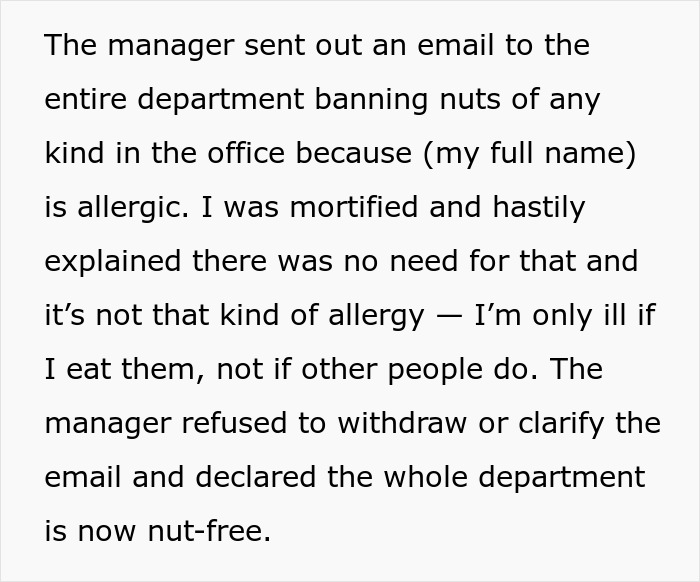
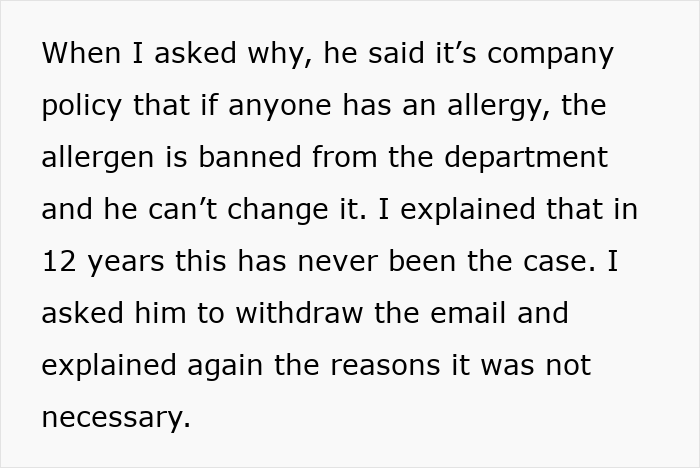

Image credits: cookie_studio/Freepik (not the actual photo)
The harassment from the manager and colleagues made the author contemplate asking for a demotion


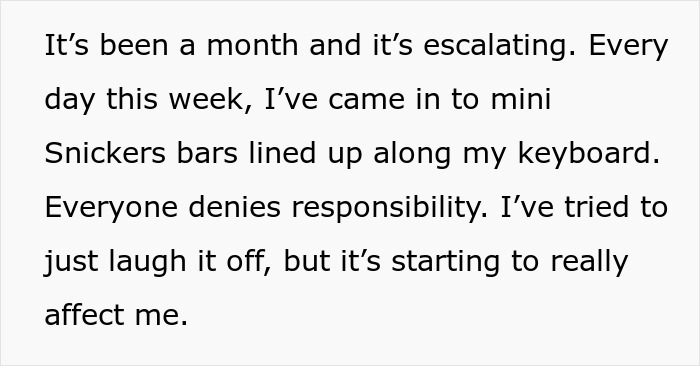
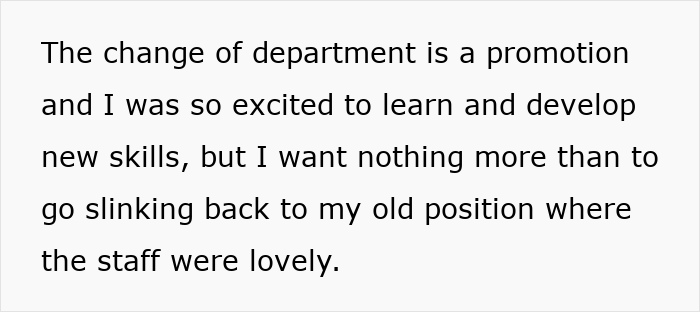
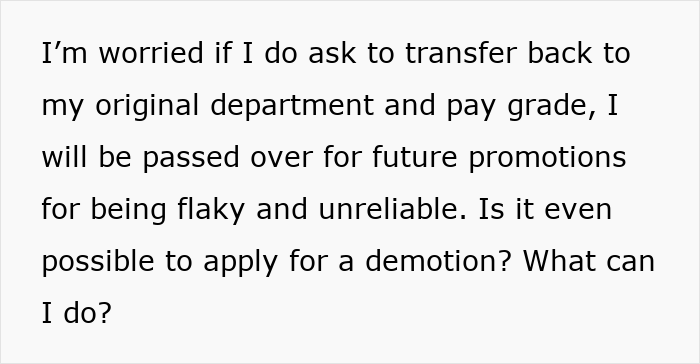
Image credits: askamanager
The author shared an update, stating upper management responded quickly
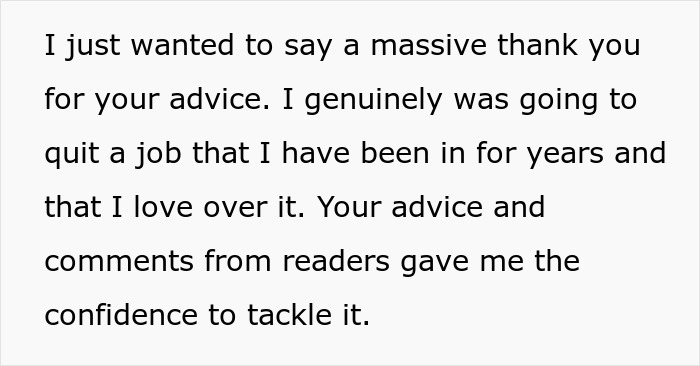
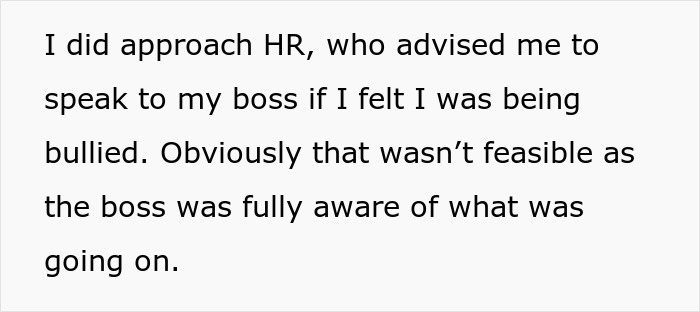
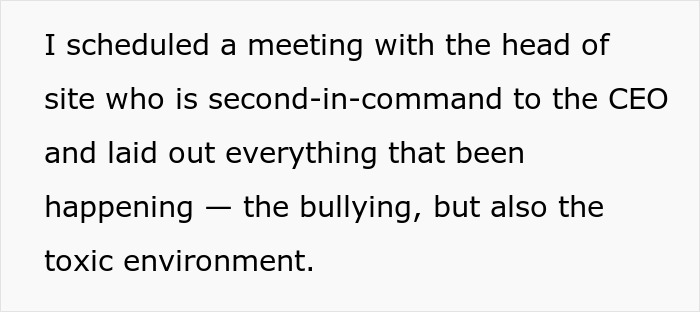
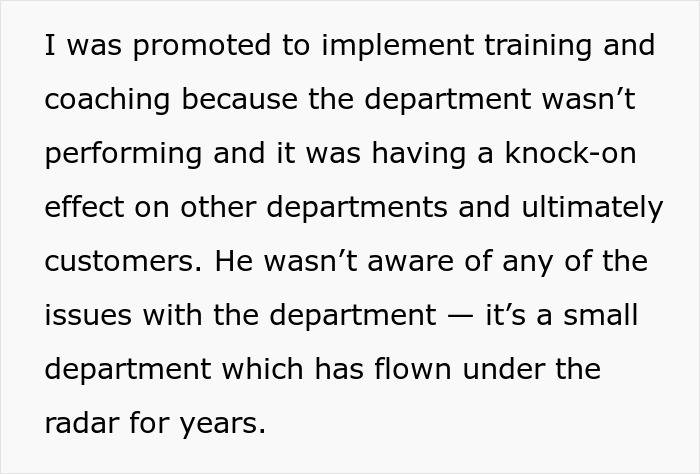
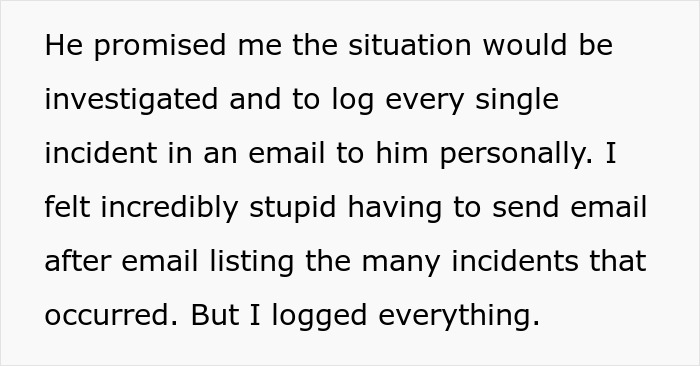


Image credits: EyeEM/Freepik (not the actual photo)
The boss was also exposed for being an incompetent leader
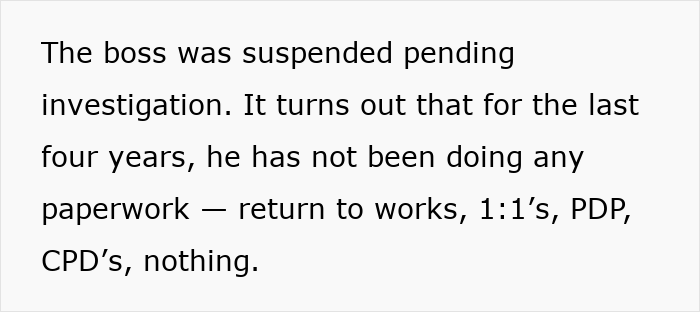
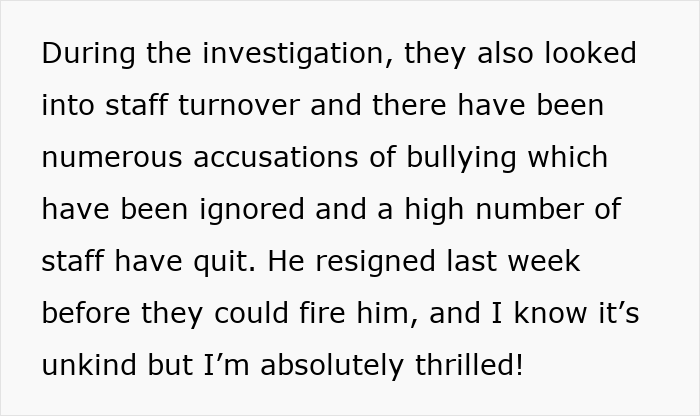
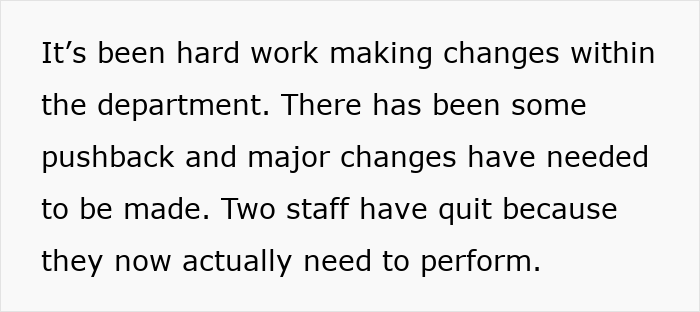
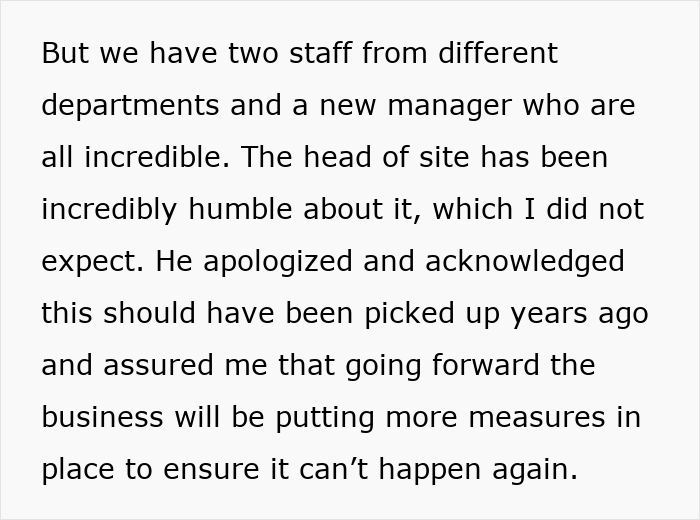
Image credits: askamanager
Bully bosses often prey on an employee’s fear

Image credits: pch.vector/Freepik (not the actual photo)
Bullying bosses have different motivations for picking on their employees. While the reasons are typically rooted in power dynamics, their behavior may be a result of deeper personal issues.
According to licensed psychotherapist Christina Kantzavelos, among them could be insecurity, unresolved personal trauma, or poor emotional regulation. As she further explains to Bored Panda, some of them may even mistake control for respect and use intimidation tactics to mask their inadequacies.
But what may stoke the fire more is when an employee shows fear, according to anti-workplace bullying advocate and Fair Path Project founder Kimberly Williams.
“I have watched many people succumb to fear, and it can greatly undermine their effectiveness in protecting themselves,” Williams said, stating that laws against workplace bullying may also vary between states.
Workplace bullying is another tell-tale sign of a dysfunctional organizational culture, according to productivity expert and coach Ann Vanino. Part of it is putting immense pressure on the boss to produce output, leading to these leaders passing that pressure onto their employees.
The company must be made aware of any bullying through documentation

Image credits: DC Studio/Freepik (not the actual photo)
Standing up to a bully boss can be a considerable risk, especially if the person holds a powerful position within the company. However, if harassment does occur in the workplace, upper management must be informed.
According to Williams, the best way to do it is to keep a log of events.
“This step scares a lot of people, but it’s critical to show that the company had knowledge of the mistreatment, and, quite frankly, this is also scary for HR and bully bosses,” she noted.
Williams specified that a letter of complaint must involve the facts, which ideally should be presented in chronological order. The document should also note that the boss’s behaviors are impairing your ability to do your job.
Documentation is necessary to prove that you’re not just feeling bullied because your boss is trying to hold you accountable. According to employment lawyer Nance L. Schrick, maintaining a solid performance history and a clean record is essential to preserving your credibility.
Bullying may also take a toll on one’s mental health, which is why Kantzavelos advises seeking trauma-informed therapy to help rebuild a sense of empowerment.
Fortunately for the author, upper management responded quickly to their report. It proved that the company as a whole valued employee well-being, save for the one bad apple that was eventually removed.
People had mixed comments, but collectively piled on the bully boss







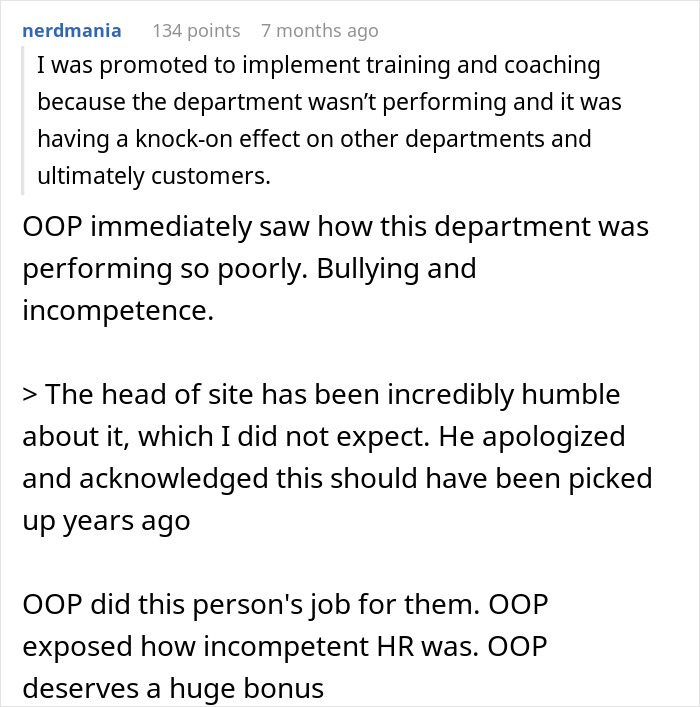

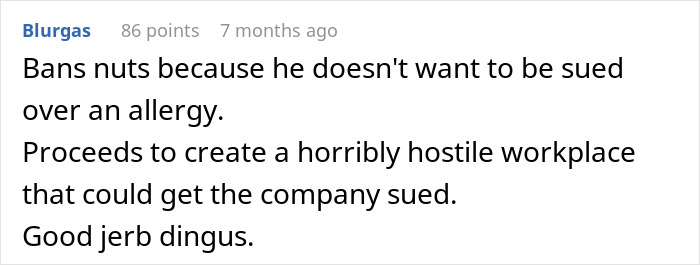



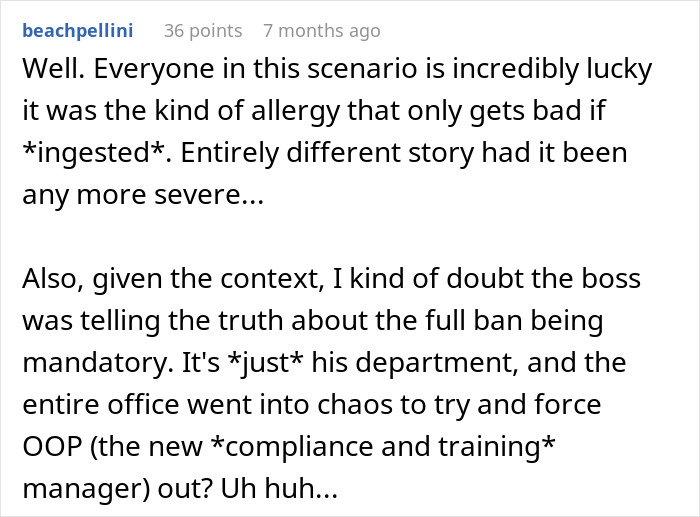

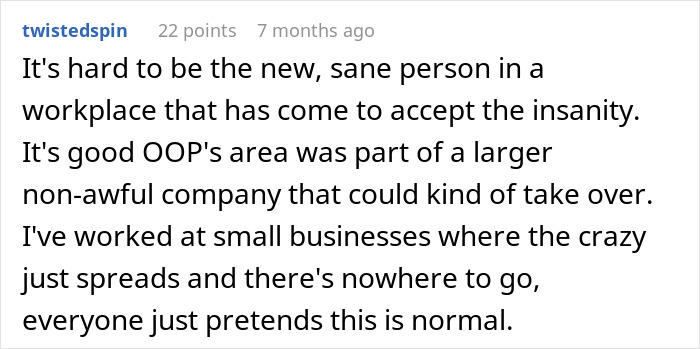

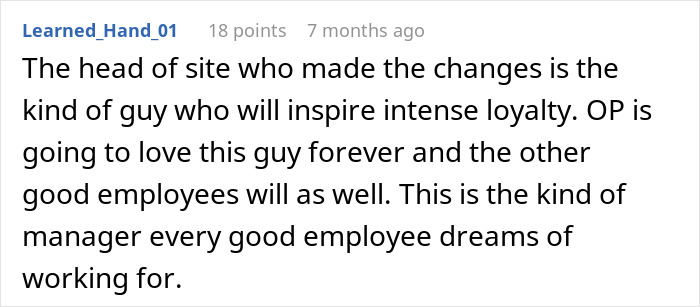

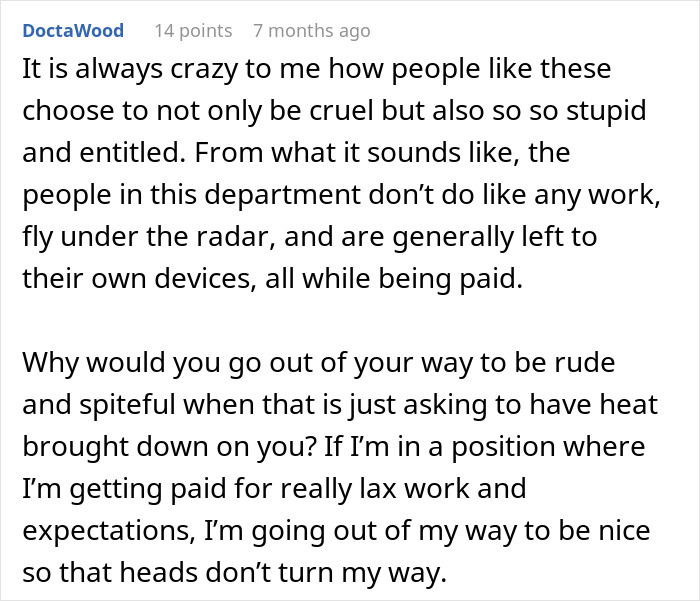
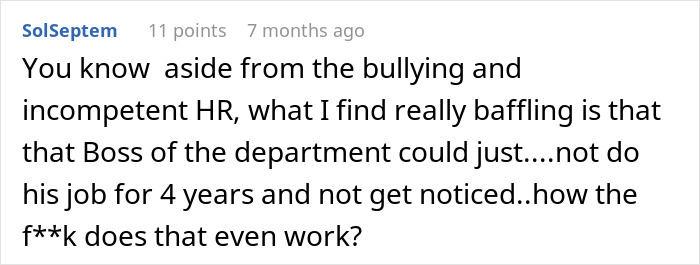
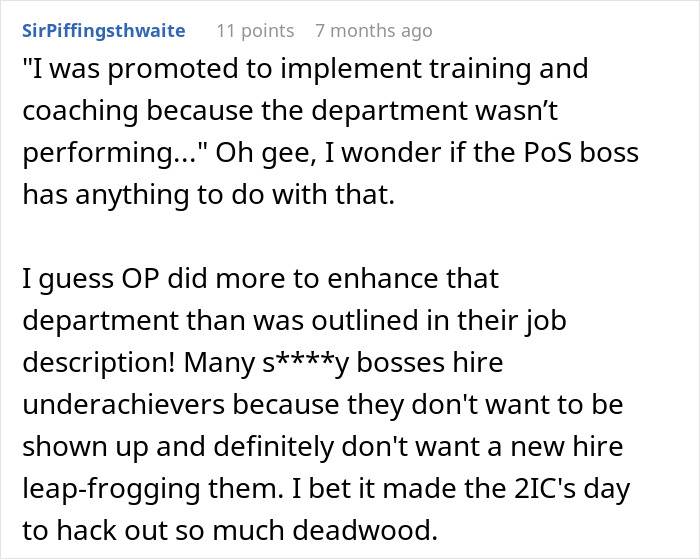




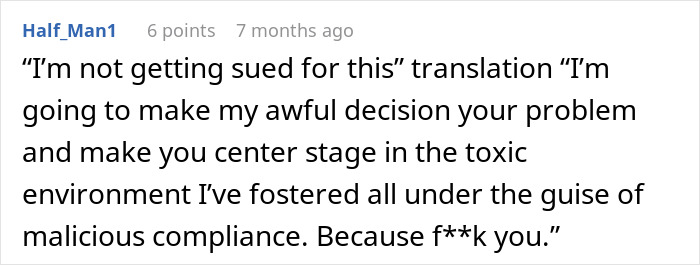
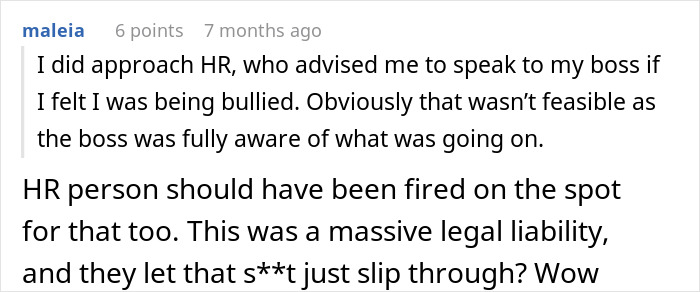




 Follow Us
Follow Us





